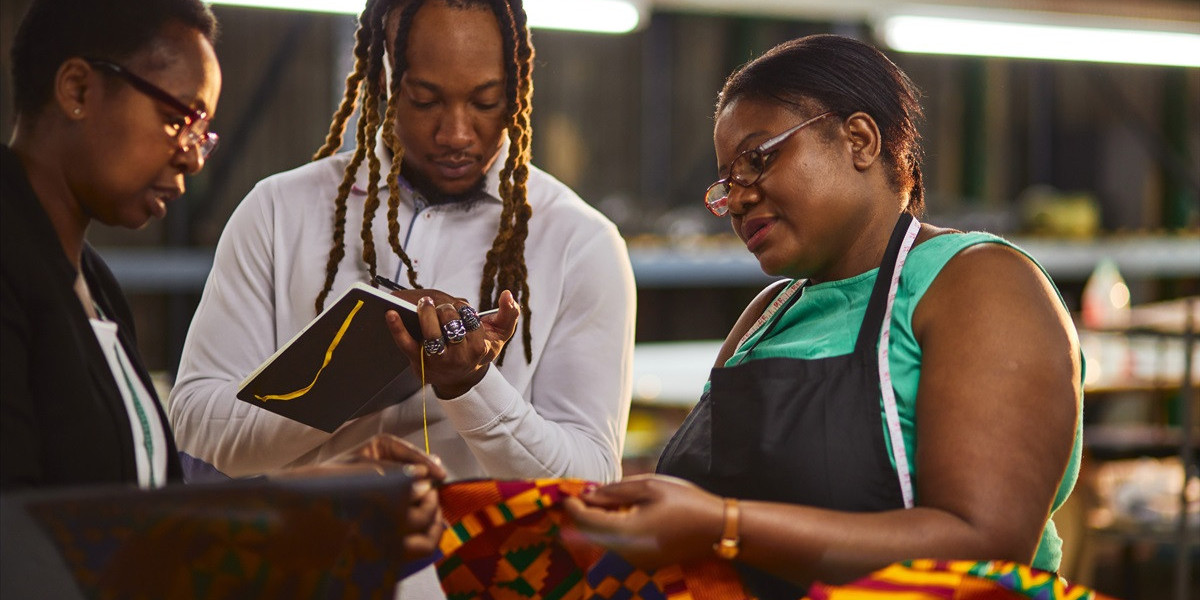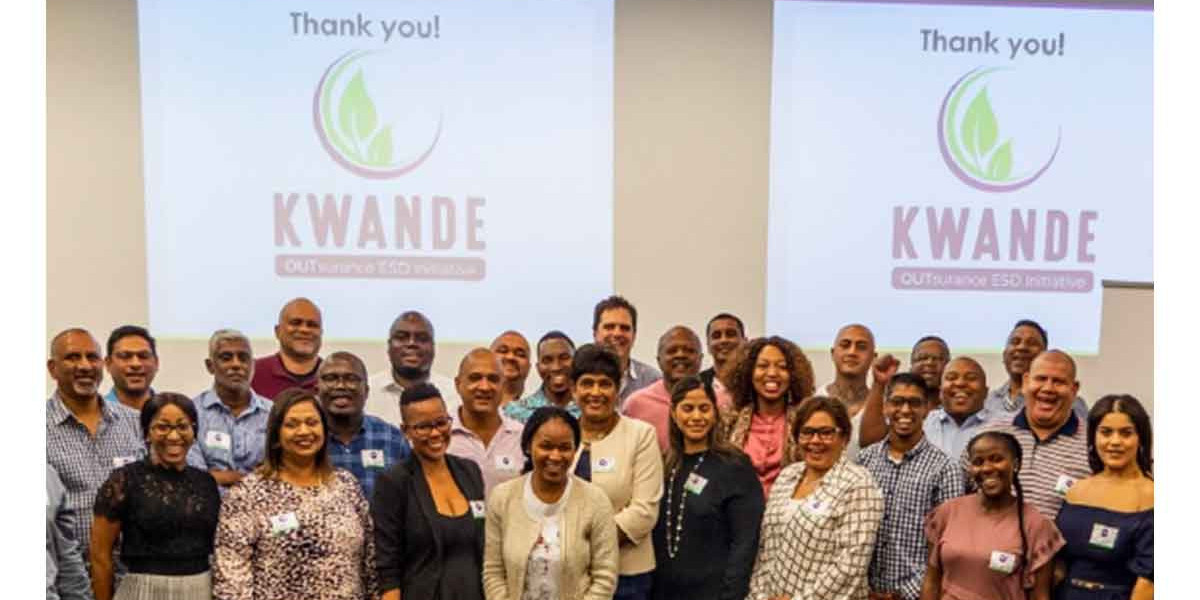1. The Evolving Entrepreneurial Landscape: Growth, Challenges, and Demographics
1.1. Growth and Potential: South Africa is a "buzzing" entrepreneurial nation with over 2 million small and medium enterprises (Plerdy). Entrepreneurship is seen as a "crucial solution" to the country's "stubbornly high unemployment rates (around 30%)" (ANDE). The Global Entrepreneurship Monitor (GEM) 2022/2023 report highlights entrepreneurship as a "key economic driver" that contributes to "improving societal health, poverty alleviation, local community development, cultural and social change, skills and human capital development, and job creation" (GEM Report, p. 23). This sentiment is echoed by the notion that "entrepreneurs are changing the world. Now even more than ever" (Graduate 101).
1.2. Significant Challenges: Despite the drive, the entrepreneurial journey in South Africa is far from "smooth sailing" (Plerdy). A stark reality is that "66% of startups don't make it past five years" (Plerdy), with some estimates putting failure rates even higher at "between 70% and 80% of all small businesses in South Africa fail within the first five years of operation" (Mail & Guardian). Key hurdles include:
- Funding: "A nightmare. Banks act like they’re allergic to startups, and investors? They want a unicorn before you’ve even built the stable" (Plerdy). The GEM report also notes that "Accessing finance, as opposed to the availability of finance, is a challenge among nascent and new entrepreneurs in South Africa" (GEM Report, p. 40).
- Skills Gap: Many young entrepreneurs lack "proper business know-how" (Plerdy).
- Mentorship: Access to mentorship is cited as one of the "two biggest hurdles" (Plerdy).
- Bureaucracy and Regulation: The "National Entrepreneurial Context Index (NECI)" for South Africa (4.10 out of 10) indicates that the country ranks "40th out of 51 economies" in terms of ease of starting a business (GEM Report, p. 91). Specifically, "Internal Market Burdens and Regulation" and "Government Policy: Taxes and Bureaucracy" are identified as areas needing significant improvement (GEM Report, pp. 87-88).
- Economic Instability: The "poorly performing South African economy" with high inflation, rising interest rates, and "persistent electricity supply problem" creates a turbulent environment (GEM Report, p. 98).
1.3. Role of Young and Women Entrepreneurs:
- Women-led Businesses: Women entrepreneurs are "making serious waves" in South Africa (Plerdy). Figures like Aisha Pandor (SweepSouth) and Sibongile Sambo (SRS Aviation) exemplify this (Plerdy). However, female entrepreneurs "face twice the struggle—getting funding, being taken seriously, and breaking into male-dominated industries" (Plerdy). The GEM report notes that while "South Africa’s gender ratio is outperforming many other GEM participating countries," women still have "lower intention, TEA, and established businesses, and higher business discontinuation rates" (GEM Report, p. 41).
- Youth Entrepreneurship: Nearly 21 million South Africans are under 35, and many are "jumping into business instead of waiting for a job that doesn’t exist" (Plerdy). There's a promising trend of high "TEA rates for age groups of 18 to 24-year-olds (8%) and 25 to 34-year-olds (10,4%)" (GEM Report, p. 42). Initiatives like WeThinkCode_ are actively training young talent for the digital economy (Plerdy).
2. Profiles of Pioneering South African Entrepreneurs: Lessons in Resilience and Innovation
The sources highlight numerous entrepreneurs who have made significant marks across diverse sectors. Their stories collectively illustrate key attributes and strategies:
2.1. Vision and Opportunity Spotting:
- Patrice Motsepe (Mining & Investments): "He saw what others missed: struggling mines could be revived and turned profitable" (Plerdy).
- Ryan Bacher (NetFlorist): His wildly successful online gift store started as "just a one-day experiment to show that an e-commerce store could work" (Plerdy).
- Theo Baloyi (Bathu): Identified a "gap in the market" for a South African sneaker brand that "represented the culture" (Plerdy).
- Mahlatse Mamaila (Ino Biodiesel): Saw the "need for sustainable solutions" by converting waste cooking oil into clean fuel (Plerdy).
2.2. Persistence and Adaptability:
- Sibongile Sambo (SRS Aviation): Rejected for a flight attendant job due to height, she "built her own path—by starting SRS Aviation, the first black female-owned aviation company in South Africa" (Plerdy). She "sold her car, borrowed money from family, and worked her way through regulations" (Plerdy).
- Marnus Broodryk (The Beancounter): Despite initial struggles and spreading his focus too thin, he realized that building a "R1 billion business simultaneously with others — that takes focus and dedication" (Leader.co.za).
- Andrew Leeuw (Sumting Fresh): His food truck business, despite being lauded globally, "slumped" due to internal issues and external robberies. His journey reflects "the darker side of starting up a business, especially for a black South African with limited business experience and expertise and little business legacy" (Mail & Guardian). Yet, he "never lost his passion" and is rebuilding, emphasizing caution about "scaling too quickly" (Mail & Guardian).
- Max Lichaba (Lichaba Creations): Grew up in poverty, lost his business, but "rebuilding Lichaba Creations to what it is today – a R120 million business" (Leader.co.za). He stresses, "You need to look for opportunity. No one else will do that for you" (Leader.co.za).
2.3. Social Impact and Community Investment:
- Vusi Thembekwayo (MyGrowthFund): Beyond his business success, he is "mentoring the next wave of African entrepreneurs" (Plerdy).
- Arlene Mulder (WeThinkCode_): Co-founded a "non-profit coding academy that helps young South African entrepreneurs break into the tech industry. No tuition fees, no privileged access—just skills, mentorship, and job opportunities" (Plerdy).
- Mahlatse Mamaila (Ino Biodiesel): Her business "isn’t just about profits—it’s about making an impact," working with women in agriculture to strengthen the supply chain (Plerdy).
- Aisha Pandor (SweepSouth): Revolutionized home services, creating "thousands of jobs" in a country with high underemployment (Plerdy).
- Ashley Uys (Medical Diagnostech): Develops "affordable and reliable medical test kits" for Africa's rural poor, significantly impacting public health (Graduate 101).
- Sarah Collins (Wonderbag): Focused on "providing an empowering and sustainable solution for rural African communities" through a non-electric heat-retention cooker (Successful Businesswomen).
- Cebolenkosi Gcabashe (G Khula Trading): Started a cleaning and hygiene business "to make a difference through promoting youth employment" (GEM Report, p. 46).
2.4. Innovation and Market Disruption:
- Sol Kerzner (Southern Sun, Sun City): Pioneered "luxury hospitality," creating iconic hotels and entertainment complexes (Daily Investor).
- Donald Gordon (Liberty Life): "Pioneered the protection of life in South Africa through insurance," launching the country's first retirement annuity and linking life insurance to unit trusts (Daily Investor). He also played a key role in developing "Sandton City, now the richest square mile in Africa" (Daily Investor).
- George Sombonos (Chicken Licken): Transformed his father's roadhouse into one of SA's biggest fast-food franchises with a unique spice recipe (Plerdy).
- Vinny Lingham (Yola Inc., Click2Customers): A "South African Internet entrepreneur" who built "massively flourishing" tech companies (Graduate 101).
- Thebe Magugu (Fashion Designer): "Taken the world by storm" with captivating menswear and womenswear, winning the prestigious LVMH prize (Black-Owned Businesses).
- Botlhale AI: Specializes in "conversational AI" and Natural Language Processing (NLP) tools for African languages, aiming to break language barriers to digital services (Black-Owned Businesses).
3. Key Lessons for Aspiring Entrepreneurs
The journeys of these successful individuals underscore several recurring themes:
3.1. Mindset and Personal Attributes:
- Resilience and Persistence: "Setbacks are inevitable. Entrepreneurs bounce back, learn from failure, and keep moving forward" (Shopify). This is critical in South Africa, where "business is not a smooth ride" (Plerdy).
- Adaptability: The ability to "stay flexible" and "move fast and adapt" is crucial, especially in volatile markets (Plerdy). Many businesses diversified during COVID-19 to survive (GEM Report, p. 23).
- Resourcefulness: "Entrepreneurs work with what they have. Whether it’s limited time, money, or support, they get creative and find solutions others might overlook" (Shopify). Sibongile Sambo and Ludwick Marishane (DryBath) are prime examples (Plerdy, Graduate 101).
- Grit and Determination: "Poverty can be a good thing. Growing up poor makes you creative," says Tim Hogins (Leader.co.za). Priven Reddy's journey from waiter to millionaire highlights that "people operate at their best when they leave their comfort zones" (Leader.co.za).
- Focus: "You can build five to ten average companies, but you can’t build a R1 billion business simultaneously with others — that takes focus and dedication" (Marnus Broodryk, Leader.co.za).
3.2. Strategic Approaches:
- Problem-Solving: Identifying "unmet needs" and "customer pain points" is a strong starting point for profitable ideas (Shopify).
- Niche Focus: Entering a "saturated market without a unique angle makes it hard to stand out" (Shopify). Differentiating through "a strong value proposition or better customer service" is key (Shopify).
- Start Lean and Validate: Beginning with a "minimum viable product (MVP)" allows testing demand and gathering feedback before significant investment (Shopify).
- Strong Business Plan: A "road map" that outlines target customers, business model, pricing, and marketing strategy is essential for focus and attracting funding (Shopify).
3.3. Importance of Support and Networks:
- Mentorship: Access to mentors is a "biggest hurdle" but also a vital resource (Plerdy). Finding experienced founders "can save you years of trial and error" (Shopify).
- Networking: "Strong businesses don’t just grow profits—they grow communities" (Plerdy). Building relationships and offering value first are key networking strategies (Shopify).
- Government and Private Sector Initiatives: While current support is often seen as insufficient, initiatives like SEDA, NYDA, and private sector programs are stepping up (Plerdy, ANDE). However, awareness and perceived effectiveness of these programs vary (GEM Report, p. 96).
4. Township Economies and Social Context
4.1. Unique Challenges and Opportunities: Townships, historically disadvantaged areas, represent a significant market value (ZAR 900 billion) and are focal points for addressing youth unemployment (ANDE). However, entrepreneurs in these areas face specific challenges:
- Macroeconomic Conditions: Overarching economic hurdles.
- Entrepreneur Resources and Abilities: Lack of training and business skills, especially for youth (ANDE).
- Funding Availability: Unrealistic funding requirements and unfamiliarity with diverse business models by agencies (ANDE). One entrepreneur noted, "I’m trying to get a government loan... but they’re still creating this barrier. So you should ask yourself, who is this fund designed for?" (ANDE).
- Business Development Service (BDS) Provision: "Proximity issues, such as isolation and lack of access to information and quality support" (ANDE).
4.2. Growing Commitment and Areas for Improvement: Despite these obstacles, there is "increasing commitment to entrepreneurs from disadvantaged backgrounds" with "over 150 organizations now support township entrepreneurship" (ANDE). However, researchers emphasize the need to "address the intersection of social minority status (including factors like race, gender, and age) and entrepreneurial challenges" (ANDE). Support efforts often "lack relevance and fail to target high-growth potential businesses" (ANDE).
5. Sustainability and Digitalization in Entrepreneurship
5.1. Sustainability Focus:
- A growing number of South African entrepreneurs are motivated "to make a difference in the world" (Plerdy, GEM Report, p. 52). This includes addressing social and environmental implications.
- While 75.4% of South African entrepreneurs prioritize social and/or environmental impacts, only 36.68% actively implement environmental sustainability practices (GEM Report, p. 70, 71). This suggests a gap between intent and action, possibly due to lack of resources or knowledge.
- The "sustainability ecosystem" in South Africa is "below average" compared to other countries, indicating a need for more robust institutional support and resources (GEM Report, p. 74).
5.2. Digital Technology Adoption:
- The COVID-19 pandemic accelerated digital adoption, with 23.65% of South African startups adopting digital technologies in response (GEM Report, p. 77).
- While a lower percentage (11.8%) planned digital adoption before the pandemic, a significant portion (45.13%) intends to adopt new digital functionalities in the future (GEM Report, p. 77).
- Interestingly, "female entrepreneurs began adopting these technologies more often during the pandemic than men" (GEM Report, p. 76), indicating their adaptability.
- The "digital ecosystem" in South Africa is "slightly less developed than the mean development of digital ecosystems in low-income countries," highlighting room for growth in infrastructure and support for digitalization (GEM Report, p. 79).
South Africa's entrepreneurial spirit is undeniable, marked by individuals who have overcome significant adversity to build successful, impactful businesses. From mining and finance to tech, retail, and social enterprises, these entrepreneurs demonstrate that innovation, persistence, and a strong sense of purpose are critical for success. However, the macro-economic challenges, coupled with specific hurdles in funding, mentorship, and a burdensome regulatory environment, continue to pose substantial threats to nascent businesses. Addressing these systemic issues, particularly for young and women entrepreneurs in township economies, is paramount. By fostering a more supportive ecosystem, promoting targeted education, and embracing sustainable and digital practices, South Africa can truly unlock the full potential of its vibrant entrepreneurial community, driving inclusive economic growth and social transformation.







